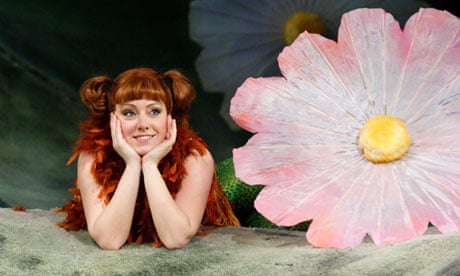The aura so magically evoked in this production back in 1980 – when it was created by David Pountney for Scottish Opera and Welsh National Opera – has now re-emerged a third of a century later. Given that Janáček's opera is about the cycle of life and the eternal process of renewal, its return seems perfectly appropriate – especially as this staging could claim to be almost perfect. Pountney's approach and the imaginative, superfunctional designs of the late Maria Bjørnson set a benchmark: the caterpillar and its concertina, as well as the mosquito and his menacing proboscis, are still a delight.
As the vixen Bystrouška, soprano Sophie Bevan had a vibrant yet creamy tone; she was captivating in her foxy allure. Yet Bystrouška is fated to be captured, and it was the symbiotic relationship between man (notably the poacher and the forester) and nature, not to mention the fragile boundary between life and death constantly implied in Janáček's restless score, that held the attention here. The notion of the two sides of nature – one benign, the other red in tooth and claw – is also playfully examined: the vixen kills her victims with impunity and, in presenting the operas back to back in his themed season Free Spirits, Pountney invites a comparison with Berg's Lulu and her victims. Food for Bystrouška's cubs is also food for thought for the audience.
Director and choreographer Elaine Tyler-Hall presided over what appeared to be some slightly vulgarised language, updated for a new age. But even if the intrinsic innocent charm was sometimes diminished, the joie de vivre and the participation of so many well-schooled children tipped things back in the right direction. Casting Jonathan Summers as the forester lent a philosophical authenticity to his character's final reconciliation with life – and thus with death – while Lothar Koenigs conducted his WNO forces with great sympathy.

Comments (…)
Sign in or create your Guardian account to join the discussion